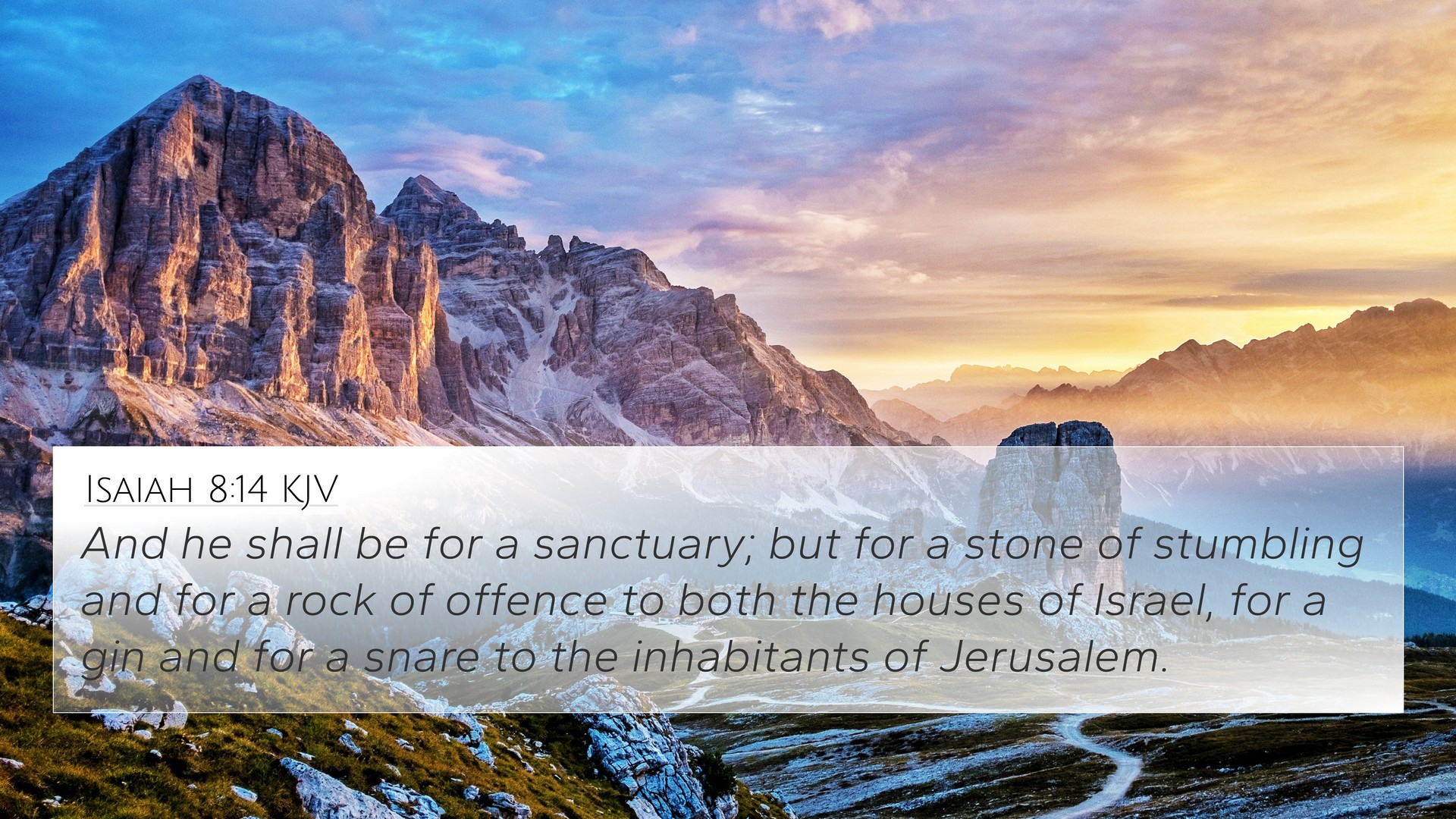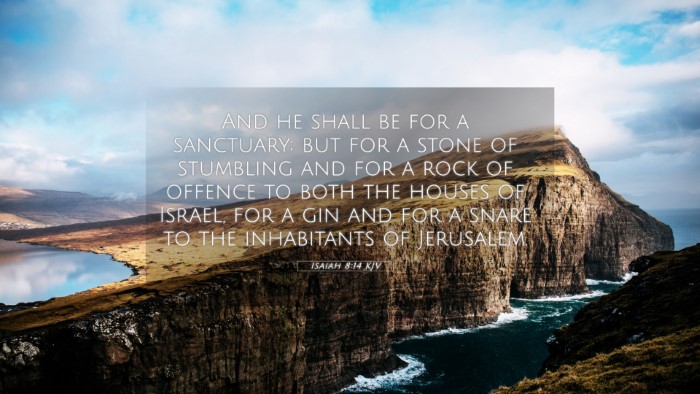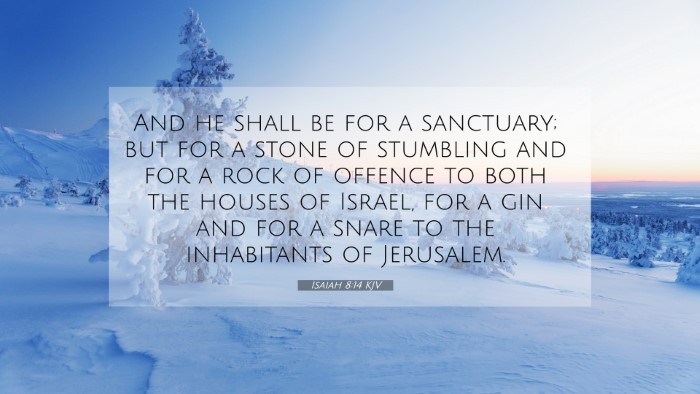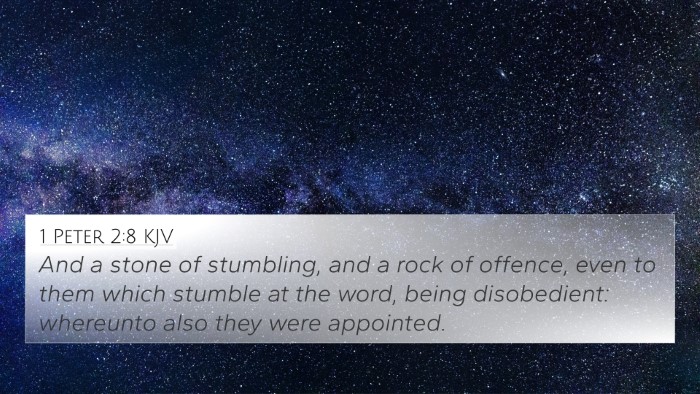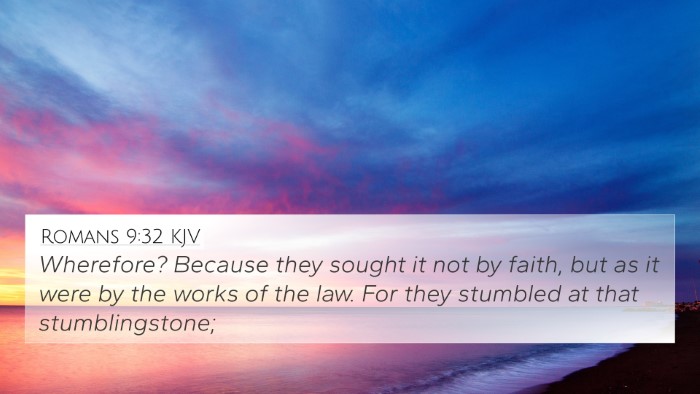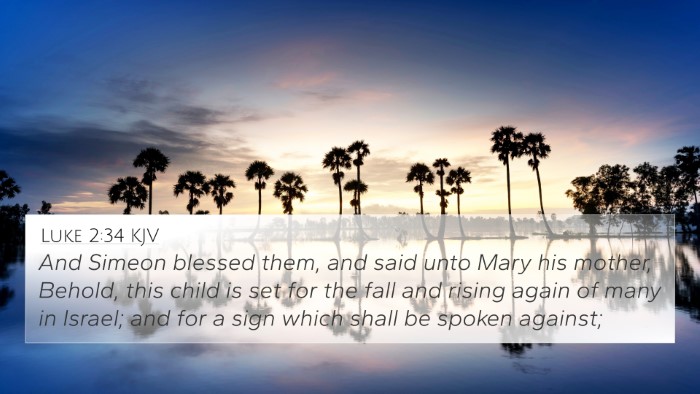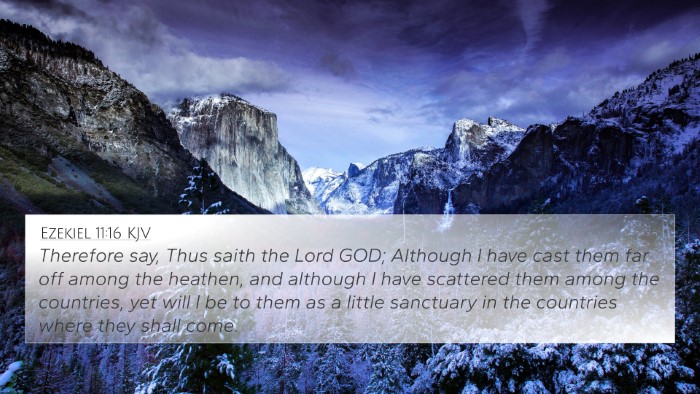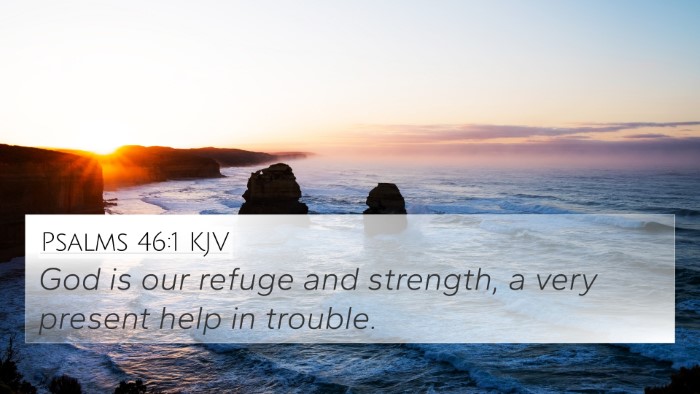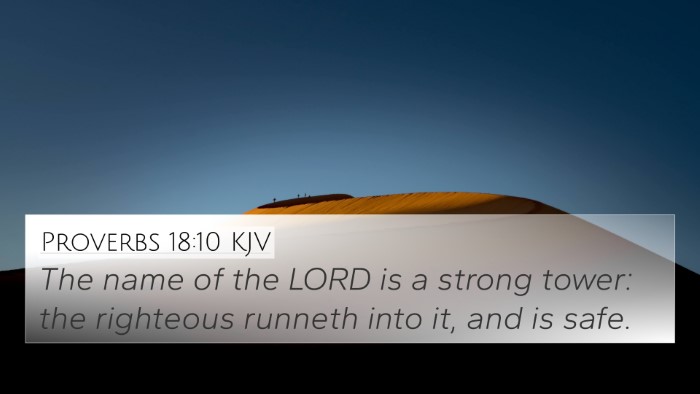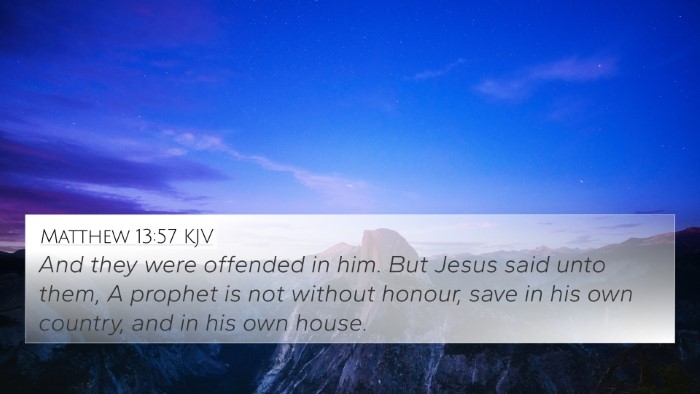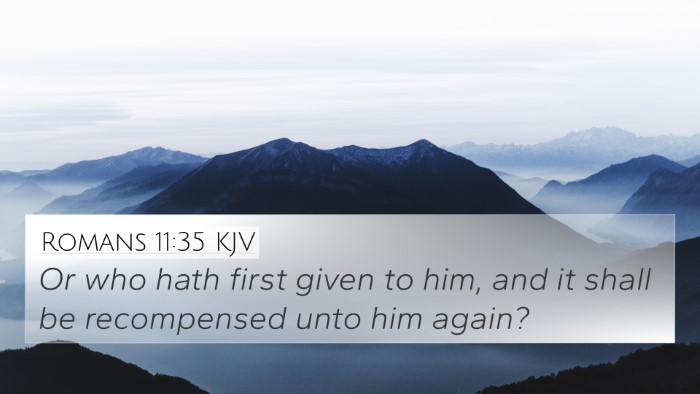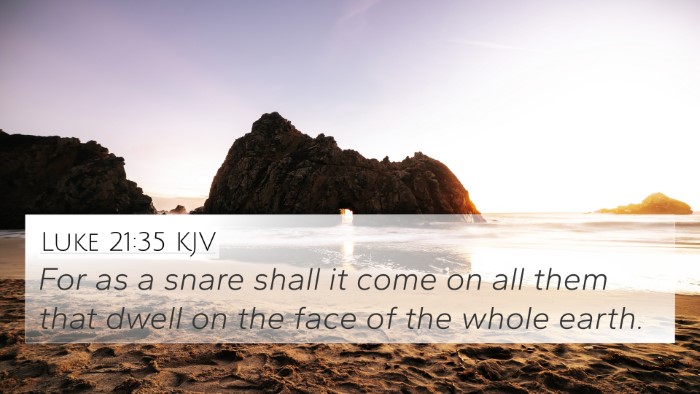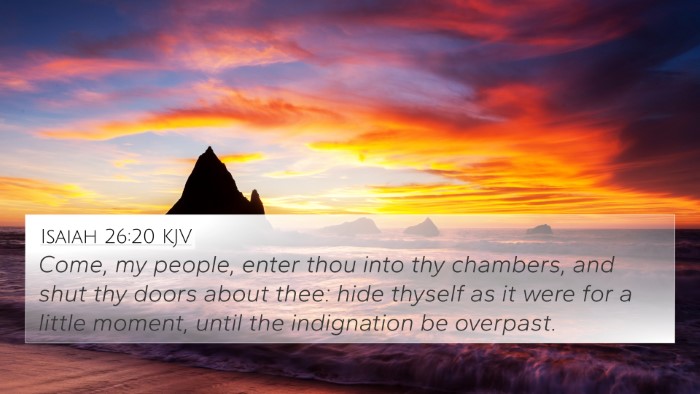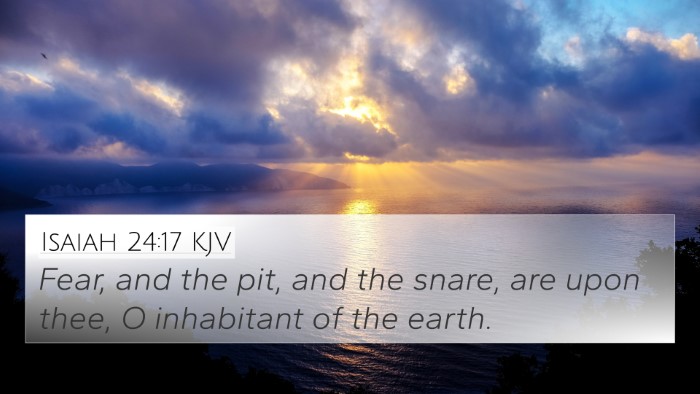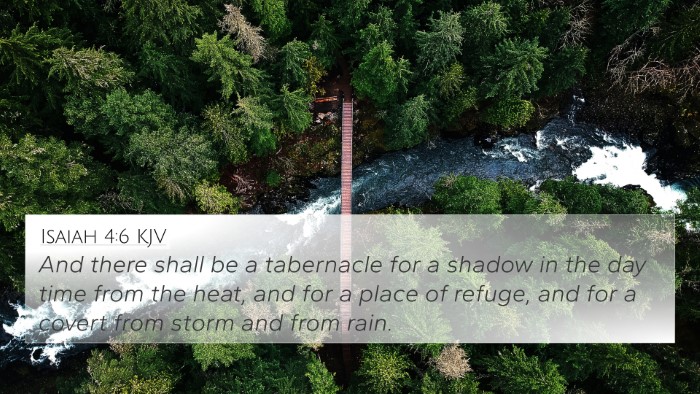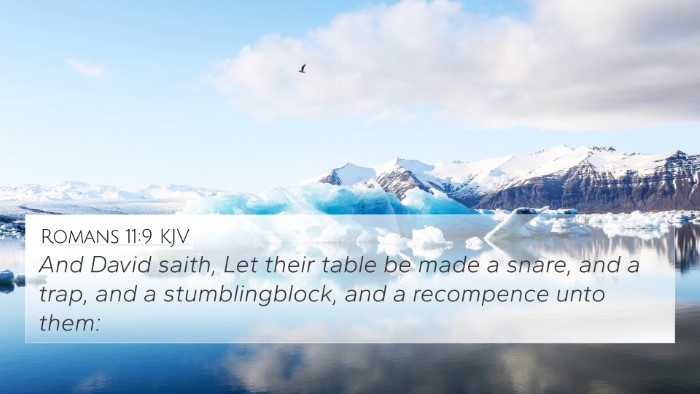Understanding Isaiah 8:14
Isaiah 8:14 states: "And he will be a sanctuary; but for a stone of stumbling and for a rock of offense to both the houses of Israel, for a gin and for a snare to the inhabitants of Jerusalem."
This verse encapsulates profound themes of comfort juxtaposed with judgment, illustrating the dual nature of God's presence. Below is a synthesized interpretation drawn from public domain commentaries including Matthew Henry, Albert Barnes, and Adam Clarke.
Summary of Meaning
The verse highlights that God will serve as both a safe haven and a source of offense. This duality can be found throughout scripture, suggesting that the presence of God brings peace to those who trust in Him, while simultaneously becoming a point of contention for those who reject or oppose Him.
The Sanctuary and Stone of Stumbling
Isaiah prophesies that for those who rely on God, He will be a sanctuary—a place of refuge and safety. Conversely, this same presence will serve as a "stone of stumbling" for others, similar to how Christ is referred to as the cornerstone in the New Testament (1 Peter 2:8).
- Psalm 91:2: "I will say of the Lord, He is my refuge and my fortress, my God, in whom I trust."
- 1 Peter 2:8: "And a stone of stumbling and a rock of offense; they stumble, being disobedient to the word, to which also they were appointed."
Judgment for Jerusalem
The latter part of the verse signifies a foreboding message aimed at Jerusalem and the people of Israel. For those entrenched in disobedience, God becomes a "snare," indicating a trap through which their denial and defiance will lead to ruin. This sentiment resonates with the reality that rejecting divine guidance ultimately leads to one's downfall.
- Jeremiah 6:21: "Therefore thus says the Lord: 'Behold, I will lay stumbling blocks before this people, and the fathers and the sons together shall fall upon them; neighbor and friend shall perish.'"
- Romans 9:33: "As it is written, 'Behold, I lay in Zion a stumbling stone and a rock of offense; and whoever believes in him will not be put to shame.'
Connections with Other Bible Verses
Here are some key cross-references that illustrate the relationships between Isaiah 8:14 and other biblical texts:
- Isaiah 28:16: "Therefore thus says the Lord God, 'Behold, I am the one who has laid as a foundation in Zion, a stone, a tested stone, a precious cornerstone, of a sure foundation: 'Whoever believes will not be in haste.
- Luke 2:34: "And Simeon blessed them and said to Mary his mother, 'Behold, this child is appointed for the fall and rising of many in Israel, and for a sign that is opposed.'
- Matthew 21:44: "And the one who falls on this stone will be broken to pieces; and when it falls on anyone, it will crush him."
- Hebrews 3:12: "Take care, brothers, lest there be in any of you an evil, unbelieving heart, leading you to fall away from the living God."
- 1 Corinthians 1:23: "But we preach Christ crucified, a stumbling block to Jews and folly to Gentiles."
- Isaiah 59:14: "Justice is turned back, and righteousness stands far away; for truth has stumbled in the public squares, and uprightness cannot enter."
- 2 Thessalonians 2:10: "And with all wicked deception for those who are perishing, because they refused to love the truth and so be saved."
Thematic Analysis
The themes evident in Isaiah 8:14 facilitate a comparative Bible verse analysis that includes confrontation versus comfort, and faith versus rebellion. By examining these themes, we gain insights into the broader narrative of Scripture regarding God’s character and human response.
Cross-Referencing as a Tool for Study
Utilizing tools for Bible cross-referencing can deepen our understanding of verses like Isaiah 8:14. The Bible concordance can highlight where other themes emerge, while a cross-reference Bible study will reveal interconnected themes across both the Old and New Testaments.
- Historical Context: Understanding the cultural background during Isaiah’s time enriches our comprehension. The struggle of Israel during moments of despair can be paralleled with modern-day challenges.
- Personal Reflection: Individual believers may reflect on their own journey and how they perceive God's presence as either comforting or challenging.
Conclusion
Isaiah 8:14 serves as a crucial reminder of the multifaceted nature of God's relationship with humanity. Through cross-referenced themes, we see the balance of judgment and mercy, strength, and vulnerability. This verse not only provides a historical insight into Israel’s plight but also encourages personal reflection on one’s faith and response to divine influence.
